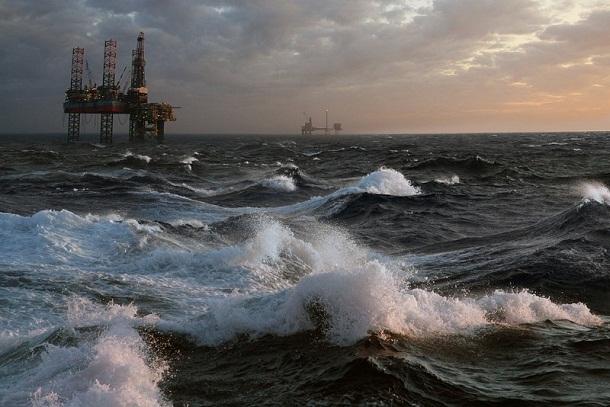
CHEVRON: TRILLIONS OF DOLLARS

Chevron Corp. Chief Executive John Watson has a blunt message for investors, climate activists and anyone else listening: Fossil fuels aren't going away.
But this stance increasingly sets him apart from his oil counterparts as they react to pressure from climate-change activists and concerned shareholders.
On Wednesday, Chevron, like Exxon Mobil Corp., is facing a shareholder-proposal campaign by activists who want the company to detail the risk climate change poses to its business. Exxon is opposed to the proposal, and so is Mr. Watson: He questions its entire premise, arguing that climate change might even prove positive for Chevron, if it spurs more of the planet to shift from coal to natural gas.
"I hope to gain market share in some areas," he said.
Where many other oil and gas executives are retreating at least in rhetoric, emphasizing common ground with environmentalists, Mr. Watson, who became CEO in 2010 after climbing the company's ranks for three decades, has doubled down.
Some of Chevron's biggest rivals, including Royal Dutch Shell PLC, Exxon, and BP PLC, have embraced some form of a price on carbon—a system that generally taxes polluters, which then pass the costs onto consumers and can lower demand. Several companies have also made new forays into renewable energy or emission-reduction technology.
Shell's CEO on Tuesday aligned himself with those pressing for a major response to climate change during the company's annual meeting in The Hague.
"We believe absolutely that climate change is real. Not all oil companies do that," Shell CEO Ben van Beurden told investors, warning that global climate goals are only achievable if governments implement "unprecedented policy change."
Mr. Watson, 59 years old, isn't a climate-change skeptic. But the staunch disciple of free markets believes that only a major technological breakthrough, rather than a top-down solution from government, will substantially curb climate change.
While nearly 200 countries agreed to reduce greenhouse-gas emissions in Paris last year, Mr. Watson doubts they will achieve their goals.
"You can sign agreements in Paris, that's a good step," he said. "But when you sign agreements and create the impression that it's going to be implemented when no one's identified the trillions of dollars that it's going to cost, it's just not clear that's going to deliver."
Shell, BP and ConocoPhillips have welcomed the idea of making additional disclosures about the risk climate change poses to their business, and last year shareholders at the companies overwhelmingly approved "climate stress test" measures.
The companies have released additional information, such as their outlook for how much global oil demand will fall if the Paris goals are met. But it has fallen short of what some investor groups want: a detailed discussion of how specific company assets may decline in value if more stringent policies are adopted to reduce global emissions.
Chevron is resisting such proposals, but notes that it already considers a potential price on carbon when planning projects.
Still, some industry insiders fear that Mr. Watson's unabashed opposition to the idea that climate change could represent systemic challenges to the industry could backfire.
"I'm worried about Chevron and Exxon's intransigence around this issue and seeming reluctance to talk about it," said Tom Nelson, head of commodities and resources at Investec Asset Management, which holds stocks in both companies. "The Americans risk alienating parts of the investment community."
Exxon hasn't exactly embraced the Paris talks either, and its annual energy outlook is in sync with Mr. Watson's view that the use of fossil fuels will grow for decades. But the company has increasingly noted that it supports a carbon tax, and it announced earlier this month a research effort to reduce emissions from natural gas-fired power plants.
Close associates of Chevron's Mr. Watson say his free-market views were solidified at the University of Chicago, where he obtained a master's degree in business administration in 1980. The university served as the intellectual home of the late economist Milton Friedman, a formidable proponent of uninhibited market forces. Mr. Watson has been known to cite Mr. Friedman's views in conversation.
Mr. Watson argues his public positions represent realism. Almost every aspect of modern life depends on the use of fossil fuels, he says. Many Americans live "paycheck to paycheck" and don't want to spend more on energy, he adds, and developing nations care more about cheap energy and local pollution than climate change.
Often, Mr. Watson points to Bill Gates, who has said "an energy miracle"—so far undiscovered—would be needed to reduce emissions enough to stave off negative impacts from climate change.
The central debate facing the biggest oil companies is whether a transition to newer, cleaner forms of energy will come in the next 30 years or in the next 100, said Amy Myers Jaffe, executive director of energy and sustainability at the University of California, Davis. While many agree with Mr. Watson, who is in the 100-year-camp, companies betting on that run a risk of being wrong, she said.
"There are some real uncertainties out there related to how quickly governments will embrace new energy policies and technologies," she said. "But those policies and technologies are real. Companies need to face this square on."
-----
Earlier:
MAJORS GREEN INVESTMENTS: 2.5 BLN




